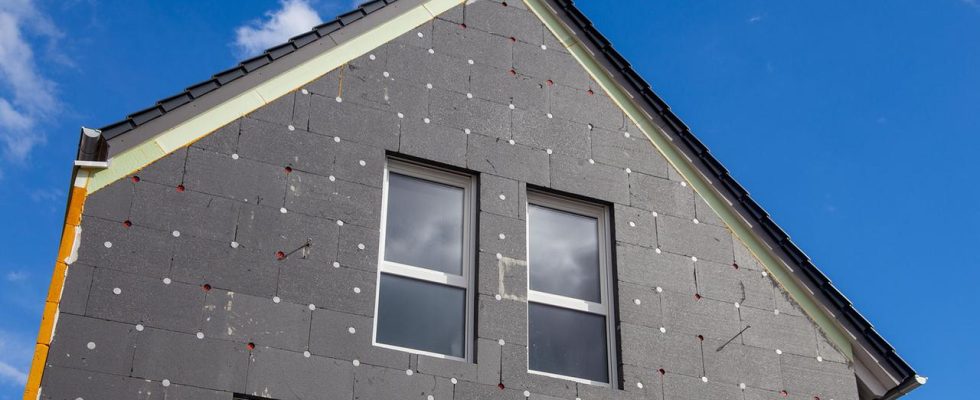faq
In order to bring old houses in Germany up to energy standards, the state supports the owners with many funding options. Which ones are there and what should you take into account?
Potential home buyers often rule out unrenovated existing properties because they are afraid of high costs and a lot of effort. Even if there are no major obligations for owners of old properties for the time being, experts say they should think about how they can upgrade it – to increase the feel-good factor, save energy and, above all, take advantage of the currently extensive subsidies.
What are the Framework conditions for the funding?
The so-called federal funding for efficient buildings – BEG for short – has been in place since 2021. For private individuals in the area of renovation, it consists of two parts: a low-interest loan for the complete renovation of a house and grants for individual measures. The funding guidelines applicable to this were updated at the beginning of the year with the traffic light coalition’s new heating law.
What does the state add?
For individual renovation steps such as insulating the facade or replacing windows, investment costs for planning and installation of a maximum of 30,000 euros per year are eligible for funding. If individual efficiency measures are to be implemented on the building envelope or in the system technology, the federal government pays 15 percent of the expenditure – i.e. up to 12,000 euros. In addition to insulating the house and replacing windows, this includes, for example, a sun protection or ventilation system as well as systems that optimize energy consumption.
What are the Requirements?
In order to receive funding, an energy consultant must confirm that the measures actually save energy. But be careful: the advisor must be on the official website Expert list the German Energy Agency so that the certificate is valid. This can also create a so-called individual restructuring plan.
If this is also submitted, the state adds a bonus of another five percentage points – and the limit of eligible costs increases to 60,000 euros. If the funding quota is completely exhausted with the requirements mentioned, you can receive a total of 12,000 euros in grants for the individual measures alone.
What about replacing the heating system?
Of course, the voluntary switch to climate-friendly heating is also encouraged. Simply put: in the best case, the state covers 70 percent of the costs for replacing the heating system. The maximum eligible expenses are 30,000 euros for a single-family home. After that, the equivalent is up to 21,000 euros. However, the funding is not exactly easy to understand.
Initially, the following technologies will be funded: solar thermal systems, biomass heating, fuel cell heating, hydrogen-capable heating, innovative heating technology based on renewable energies, building and heating network connection and electrically operated heat pumps. Depending on the effort and type of pump, this alone usually costs between 12,000 and 35,000 euros, including installation in a residential building.
How much money does the state contribute?
The basic subsidy for all climate-friendly heating types is 30 percent. An additional five percent efficiency bonus is available for heat pumps that use water, soil or wastewater as a heat source or that use a natural refrigerant. A surcharge of 2,500 euros is granted for biomass heating systems if they comply with a dust emission limit of 2.5 mg/m³.
There is also a climate speed bonus for the early replacement of old fossil heating systems. This bonus will be 20 percent until the end of 2028, after which it will decrease by three percent every two years. The additional bonus is granted for the replacement of functional oil, coal, gas or night storage heaters as well as biomass and gas heaters that are more than twenty years old. In addition, for the first time there is an income-dependent bonus of 30 percent if the taxable household income does not exceed 40,000 euros per year.
The various bonuses can be combined, but are capped at 70 percent of the costs. By the way: The subsidies for heating replacement can also be added up with the money for individual measures. In total, a maximum limit of eligible expenses of 90,000 euros per year applies to a single-family home if the heating system is replaced and efficiency measures are carried out with an individual renovation schedule.

Podcast “Gold & Ash: House Purchase Project”
In the first season of “Gold & Asche” the ARD financial editorial team The most important things when buying a house are examined step by step in seven episodes – with background information and expert knowledge. You can hear it in the ARD audio library and wherever podcasts are available. The individual episodes You will find here.
Episode 1: Is it worth buying a house? (21st of February)
Episode 2: The Right Time to Buy a Home (February 21)
Episode 3: How much house can I afford? (February 28)
Episode 4: What do I have to pay attention to when getting a loan? (6th March)
Episode 5: How the state provides financial support for buying a house (March 13)
Episode 6: Everything about energy renovation (March 20)
Episode 7: Was everything better before? (27th of March)
When and where can the grants be applied for?
To receive the subsidies, a delivery or service contract must already have been concluded with a craftsman. This must contain the expected date of implementation and a note that it depends on the funding application. The money for individual renovation measures can be applied for from the Federal Office of Economics and Export Control (BAFA). To exchange their heating system, consumers must contact the Kreditanstalt für Wiederaufbau (KfW).
In general, the subsidies make sense especially if an older house needs to be renovated step by step or if everything no longer needs to be renewed. In addition, they can sometimes be combined with regional funding programs. If, on the other hand, a complete renovation is planned, the low-interest loans from KfW may be more interesting. It is best to discuss this with an energy consultant.
What KfW loans are there?
The federal funding loan for buildings (BEG for short) is not only available for the purchase of a newly renovated efficiency house, but also for an energy-efficient renovation. In addition, applicants can currently receive an effective annual interest rate of between 2.02 and 2.66 percent – depending on the term, repayment and type of loan. The fixed interest rate is ten years.
The amount of the loan depends on how energy efficient the property is. However, the maximum is 150,000 euros. There is also a repayment subsidy of between five and 25 percent, which reduces the entire loan overall. If the house is one of the worst 25 percent of buildings in Germany in terms of energy technology and is renovated with finished components, there is even a repayment subsidy of up to 45 percent.
There are also KfW loans specifically for renewable energies, for example photovoltaic systems. However, the conditions depend on your creditworthiness. In other words: The bank determines the individual interest rate based on the location, the economic circumstances and the quality of the collateral. However, the loan can be combined with others, then it could be worth it again.
Also new is a supplementary loan offer of up to 120,000 euros – with reduced interest rates for private owner-occupiers with a taxable household annual income of up to 90,000 euros – for heating replacement and other efficiency measures. The effective annual interest rate is currently 0.01 to 2.17 percent.
How do you apply for loans?
Very important: The loans must be applied for before further steps such as a notary appointment or even a purchase contract are signed. The first step is to research which program is suitable. This is possible via the KfW website, where it is available different tools that can be used to search for and calculate suitable loans. Consumer advice centers or magazines such as Finanztip and Finanztest also provide extensive information about government funding.
The second step is to talk to financing partners such as the house bank or other institutes. But there is a catch. This is how the banks get commission – but it is not very high for KfW loans. In this respect, financial institutions are more interested in brokering their own loans. Therefore, experts recommend getting offers from several banks and credit brokers. And if there is still no indication of government funding, those interested can simply ask about it themselves.
What else is there?
Alternatively, you can continue to claim tax support under income tax law. 200,000 euros can be claimed per house. Owners can get 20 percent refunded as part of their income tax spread over three years. Here, too, there are certain requirements: a minimum age of the house of ten years, skilled craftsmen and generally such a high amount of income tax that has been paid. However, if other government funding is used, this option no longer applies.
In addition, all owners who have a Riester contract can use the credit for energy-related renovations. The money can be spent, for example, on new external doors and windows, insulation or replacing the heating system. And another tip: At Riester there are minimum amounts to receive funding. If in doubt, you can quickly deposit something.

